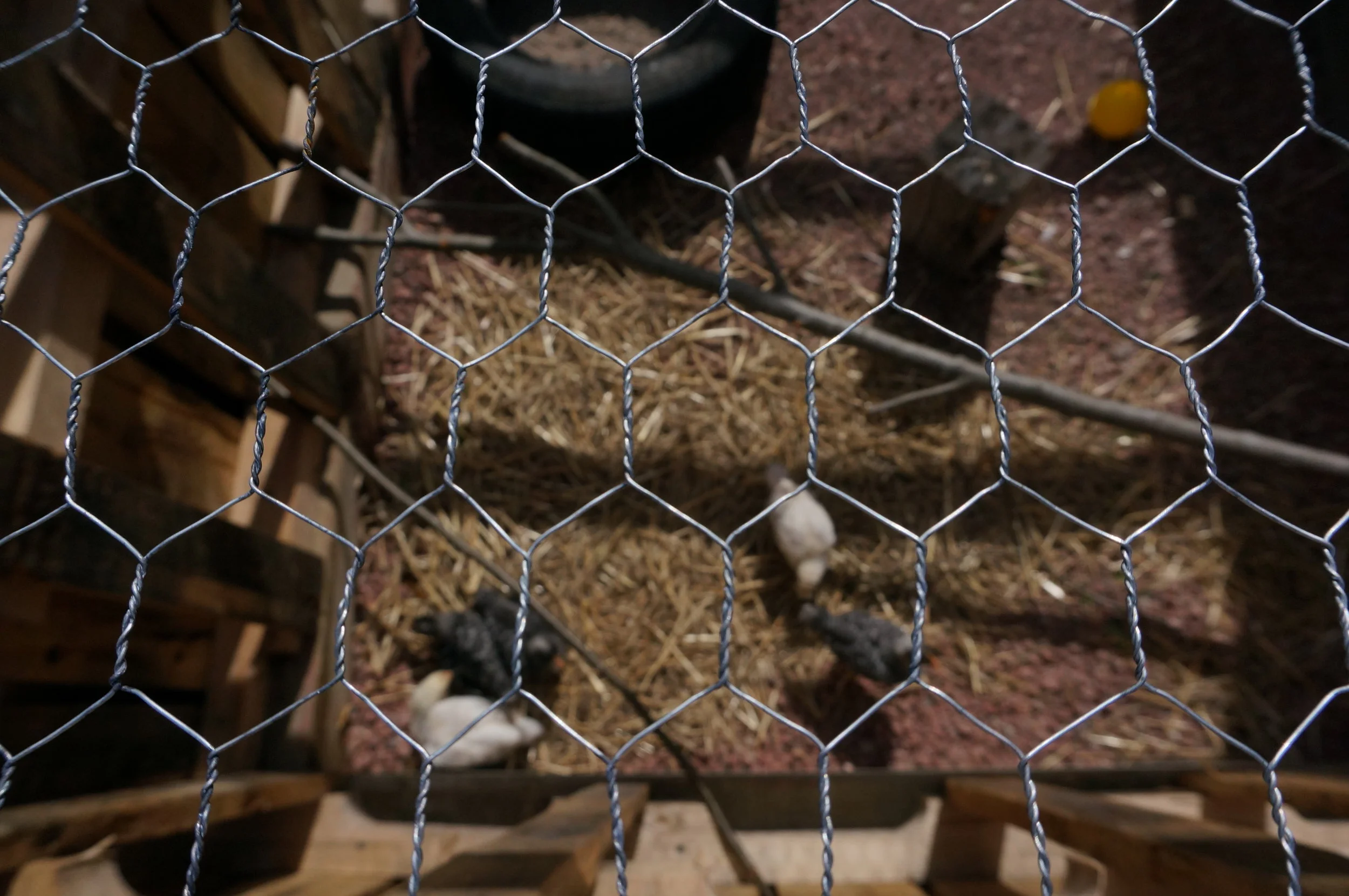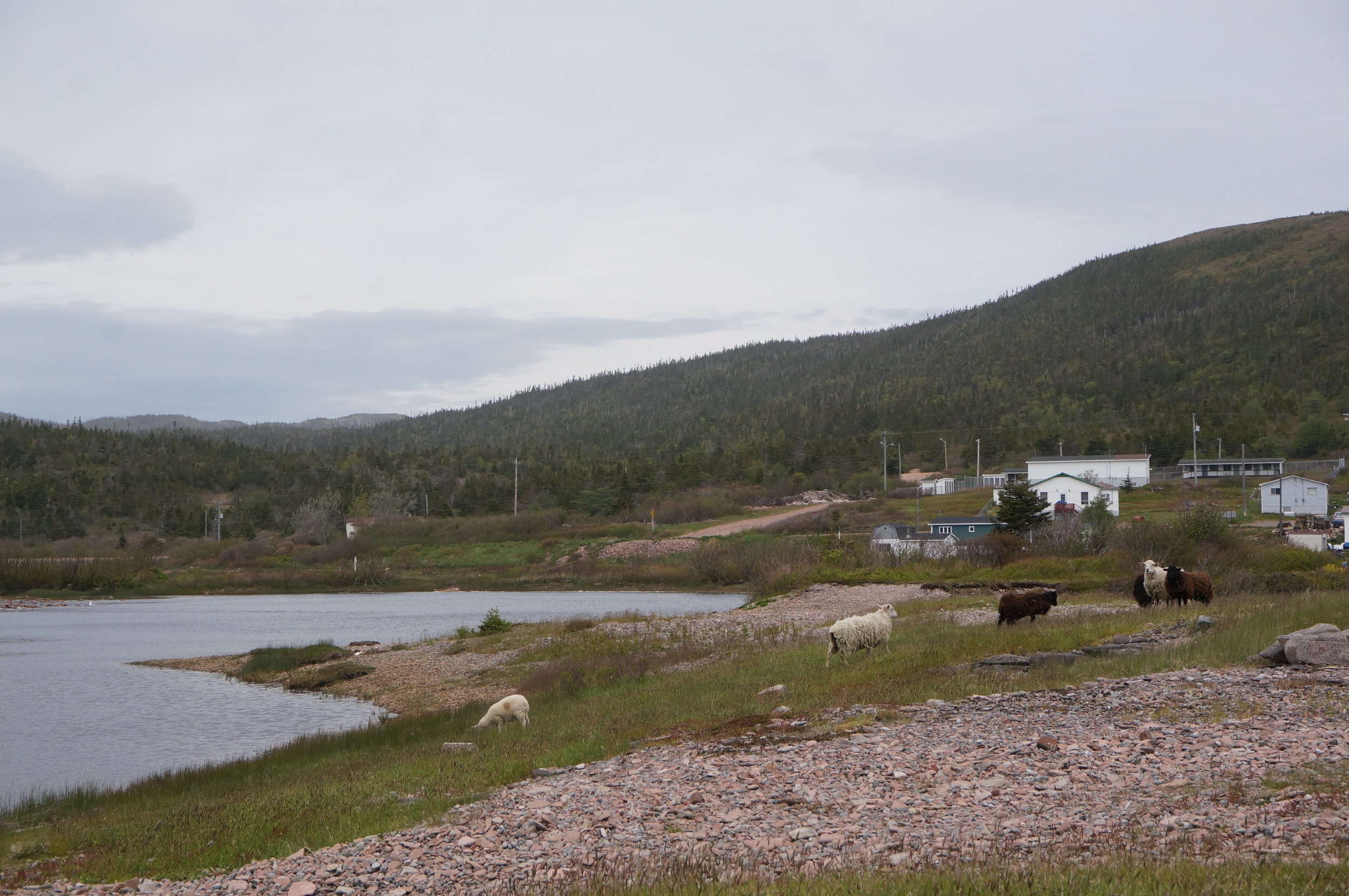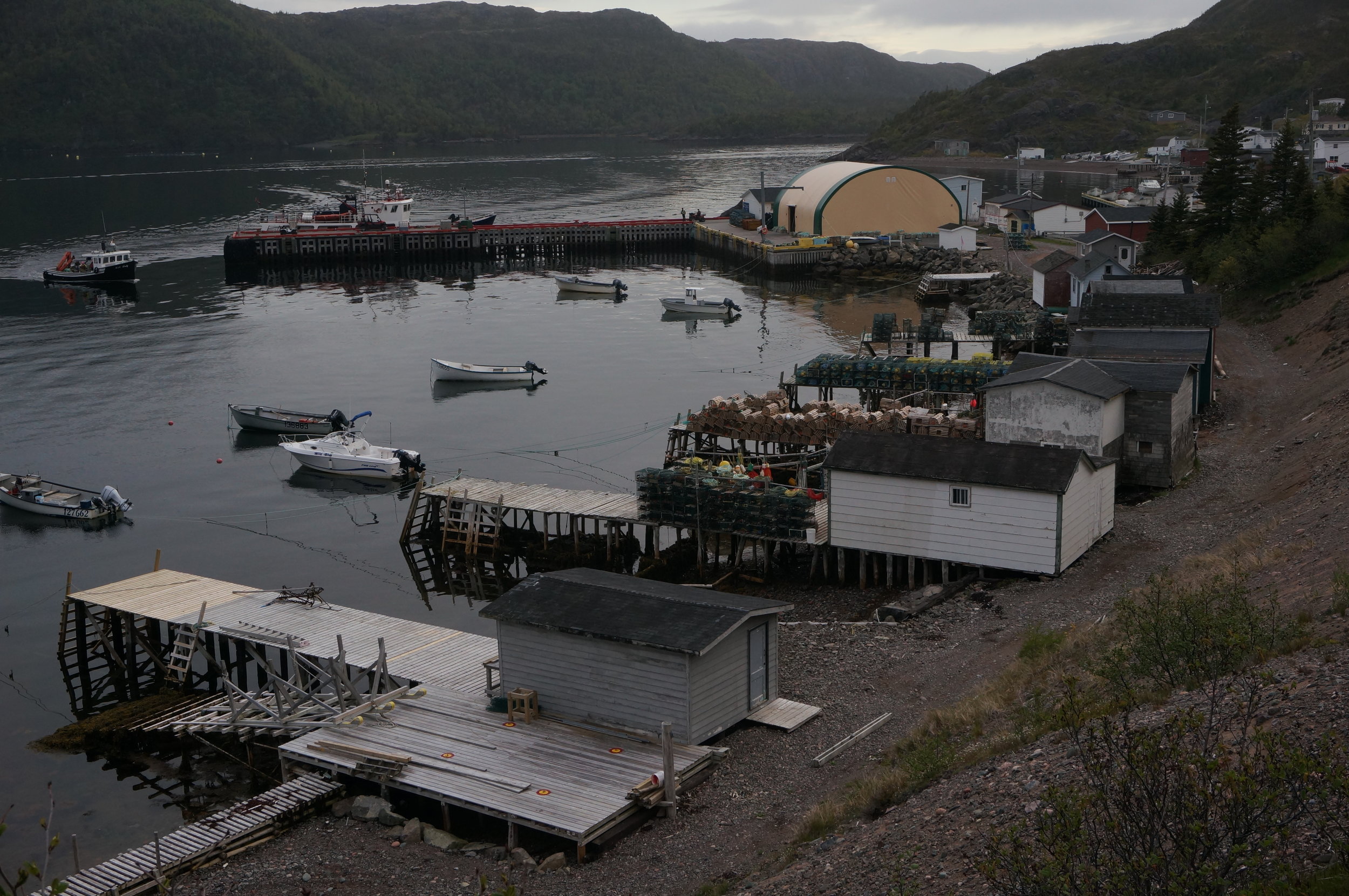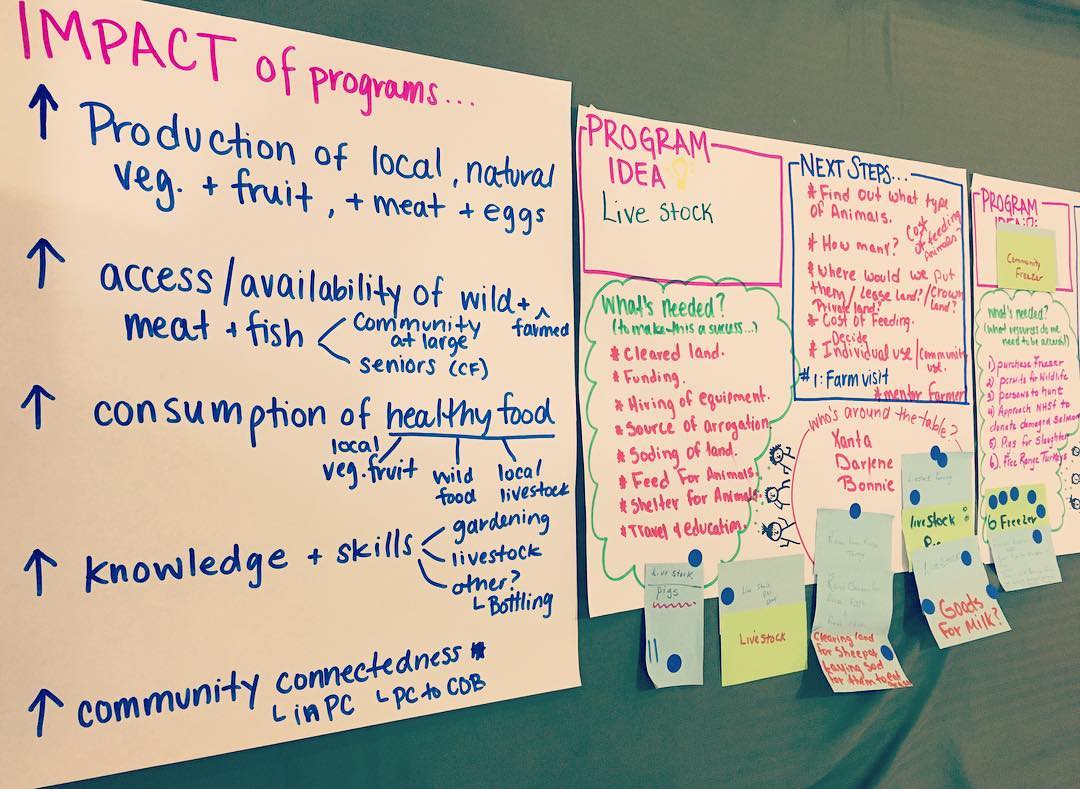Kristie & Sarah -- Food First NL's executive director & education manager -- are fresh back from the Coast of Bays, where we’re working with 3 communities to improve access to healthy, affordable, and culturally appropriate food: Miawpukek First Nation, Pool’s Cove, and Rencontre East.
We hired a local food security coordinator in each of these communities, and they’ve conducted Community-Led Food Assessments to understand the obstacles each community is facing in accessing and affording healthy, desirable food, as well as the assets these communities have available to remedy these obstacles.
In late June, Kristie and Sarah visited each community to host action planning meetings and support each community in developing programs to address local issues of food security.
At these action planning sessions, community-based food security committees and other key community leaders were present and vocal in helping to select, envision, and design a slate of 1-3 programs that they felt would most improve food security in their town.
Sample Outcome: Livestock Rearing in Pool’s Cove
At the Action Planning Meeting in Pool’s Cove, many options were presented, but one program that got everyone excited was livestock rearing. From the very start, the community of Pool’s Cove was interested in rearing livestock to provide the community with fresh meat.
"The idea for livestock came from most of the committee," says Josephine Marshall, Food First NL's Food Security Coordinator in Pool's Cove. "When they were teens a lot of their parents had livestock, so when we were thinking about programs this is one that came up."
Chickens, pigs, and sheep emerged as popular picks.
"My daughter Bonnie and Daughter-in-law Xanta could not wait for Food First NL to come up with the action plan with our committee, so they decided to go ahead and order their own hens and a rooster to show the community what we could have in this community if we really wanted to go back growing our own gardens raising your own animals!"
Josephine says the long term goal is to see a farm established, once they gather all the information they need on expenses, space requirements, and so on. "I can see us having a team set up to look after the different animals when this does come on stream."
This spring, Josephine and her family established a community garden in Pool's Cove, using upcycled fish bins donated from Northern Harvest Sea Farms.
"A lot of our young couples are already involved in looking after the tubs that they set veggies in back in June," she says.
"It is amazing to see even the kids of those families in the garden looking to see if they can see anything coming through the soil, and all the excitement when they do. You can feel how much they are looking forward to getting veggies from their garden."
As for the livestock, she says "I would say no one passes Bonnie's chicken house without spending time there watching the chickens."
She thinks the chickens will soon be joined by other birds like turkeys and silkie hens.
"Our community has changed so much, with people just going to the garden or to visit the hens that are next door. People are just looking to see how well this will turn out in the fall or over the winter."
The Community-Led Food Assessments revealed that only 9% of people in Pool’s cove grew or reared their own food, and this lack of locally produced food was seen as a gap for the community. In fact, the most commonly suggested solution to improve access to healthy, affordable food in Pool’s Cove was to grow more food locally.
Clearly, the community is taking the results of our community-led food assessment and building something very promising out of it. 69% of people who filled out surveys during the Food Assessments reported travelling outside the community to purchase healthy foods. These community gardens and plans to rear livestock will help put the brakes on stats like that.








